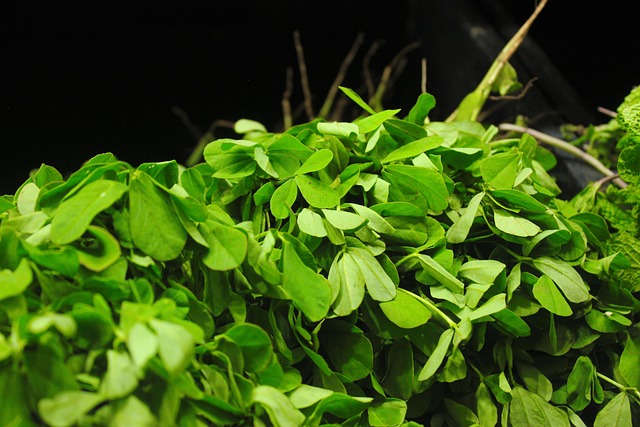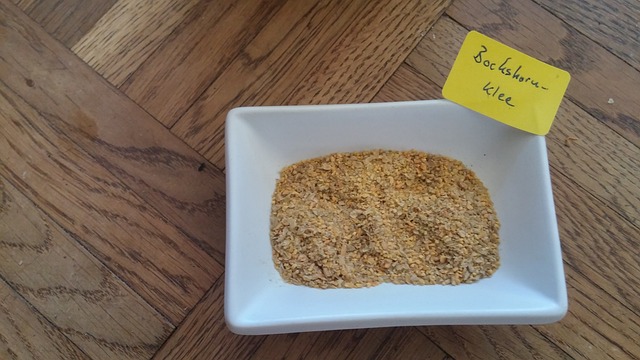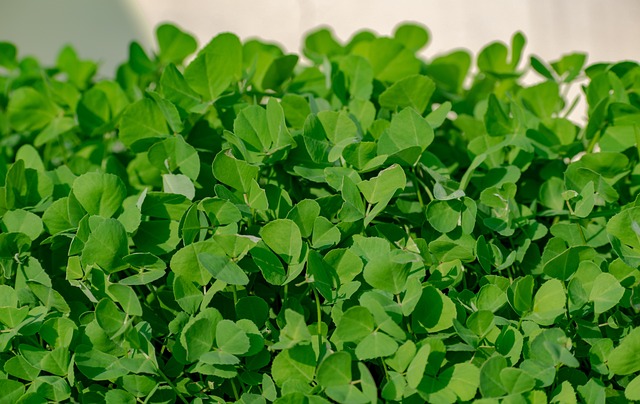In the world of herbs and spices, fenugreek (Trigonella foenum-graecum) stands out not only for its distinct aroma and flavor but also for its myriad health benefits. This humble plant, native to the Mediterranean region, has been utilized for centuries in traditional medicine systems like Ayurveda and Traditional Chinese Medicine (TCM). From culinary delights to therapeutic remedies, fenugreek and its seeds have left an indelible mark on human health and well-being. In this comprehensive exploration, we delve into the wealth of health benefits that fenugreek offers, shedding light on its nutritional profile, medicinal properties, and practical applications.

Nutritional Profile of Fenugreek Seeds
Fenugreek seeds are a nutritional powerhouse, boasting a rich array of vitamins, minerals, and bioactive compounds. These small, amber-hued seeds pack a punch of nutrients, including:
Protein
Fenugreek seeds are a good source of plant-based protein, making them a valuable addition to vegetarian and vegan diets.
Fiber
With a high fiber content, fenugreek seeds promote digestive health, aid in weight management, and help regulate blood sugar levels.
Vitamins
Fenugreek seeds are rich in vitamins such as vitamin A, vitamin C, vitamin B6, and riboflavin, contributing to overall health and vitality.
Minerals
These seeds contain essential minerals like iron, magnesium, calcium, and potassium, supporting bone health, muscle function, and electrolyte balance.

Phytonutrients
Fenugreek seeds are abundant in phytochemicals like flavonoids, alkaloids, and saponins, which possess antioxidant, anti-inflammatory, and antimicrobial properties.
Health Benefits of Fenugreek and Its Seeds
Blood Sugar Regulation
Fenugreek seeds contain soluble fiber and compounds like galactomannan, which help regulate blood sugar levels by slowing down the absorption of carbohydrates and improving insulin sensitivity. Research suggests that fenugreek supplementation may be beneficial for individuals with diabetes or prediabetes.
Digestive Health
The fiber-rich content of fenugreek seeds promotes digestive regularity, prevents constipation, and alleviates symptoms of indigestion. Additionally, fenugreek seeds have been traditionally used to relieve gastrointestinal ailments like bloating, flatulence, and stomach cramps.

Heart Health
Studies indicate that fenugreek seeds may have cardio-protective effects, attributed to their ability to lower cholesterol levels, reduce triglycerides, and inhibit the formation of arterial plaque. By improving lipid metabolism and reducing inflammation, fenugreek contributes to a healthier cardiovascular system.
Weight Management
The high fiber and protein content of fenugreek seeds promote satiety, helping individuals feel full for longer periods and reducing overall calorie intake. Incorporating fenugreek seeds into the diet may aid in weight loss and weight management efforts.
Hormonal Balance
Fenugreek contains phytoestrogens, plant-based compounds that mimic the activity of estrogen in the body. These compounds may help regulate hormonal balance, alleviate symptoms of PMS (premenstrual syndrome), and support women’s reproductive health.
Enhanced Milk Production
In lactating mothers, fenugreek supplementation has been associated with increased milk production. This effect is attributed to the galactagogue properties of fenugreek, which stimulate milk synthesis and flow.
Anti-inflammatory Effects
Fenugreek seeds exhibit potent anti-inflammatory properties, thanks to their content of compounds like diosgenin and fenugreekine. These bioactive constituents help reduce inflammation in the body, offering relief from conditions like arthritis, asthma, and inflammatory bowel diseases.
Antimicrobial Activity
Fenugreek seeds possess antimicrobial properties, making them effective against various pathogens such as bacteria, viruses, and fungi. Incorporating fenugreek into the diet may help bolster the immune system and protect against infections.
Practical Applications of Fenugreek
Culinary Delights
Fenugreek seeds are a staple ingredient in Indian, Middle Eastern, and North African cuisines, adding depth of flavor and aroma to dishes like curries, stews, and bread. Fenugreek leaves, known as methi, are also used in cooking to impart a distinctive taste to dishes.
Herbal Remedies
Fenugreek seeds are utilized in herbal medicine formulations and traditional remedies for various health conditions. They can be consumed as a tea, infusion, or powdered supplement for their therapeutic effects.
Topical Preparations
Fenugreek seeds are used topically in the form of poultices, creams, or oils for skincare purposes. Their anti-inflammatory and antimicrobial properties make them beneficial for treating skin conditions like acne, eczema, and minor wounds.
Supplements
Fenugreek supplements, available in the form of capsules, tablets, or liquid extracts, offer a convenient way to reap the health benefits of fenugreek. These supplements are often standardized to contain specific concentrations of active compounds for optimal efficacy.

Precautions and Considerations
While fenugreek offers numerous health benefits, it’s essential to exercise caution and consult with a healthcare professional, especially for individuals with certain medical conditions or allergies. Pregnant women, nursing mothers, and individuals on medication should seek guidance before incorporating fenugreek into their regimen.
Conclusion
In conclusion, fenugreek and its seeds stand as a testament to nature’s healing prowess, offering a treasure trove of health-enhancing properties. Whether enjoyed in culinary creations or utilized for therapeutic purposes, fenugreek continues to captivate with its versatility and efficacy. Embracing fenugreek as a dietary staple or herbal remedy can pave the way for improved well-being and vitality, enriching both body and soul.













